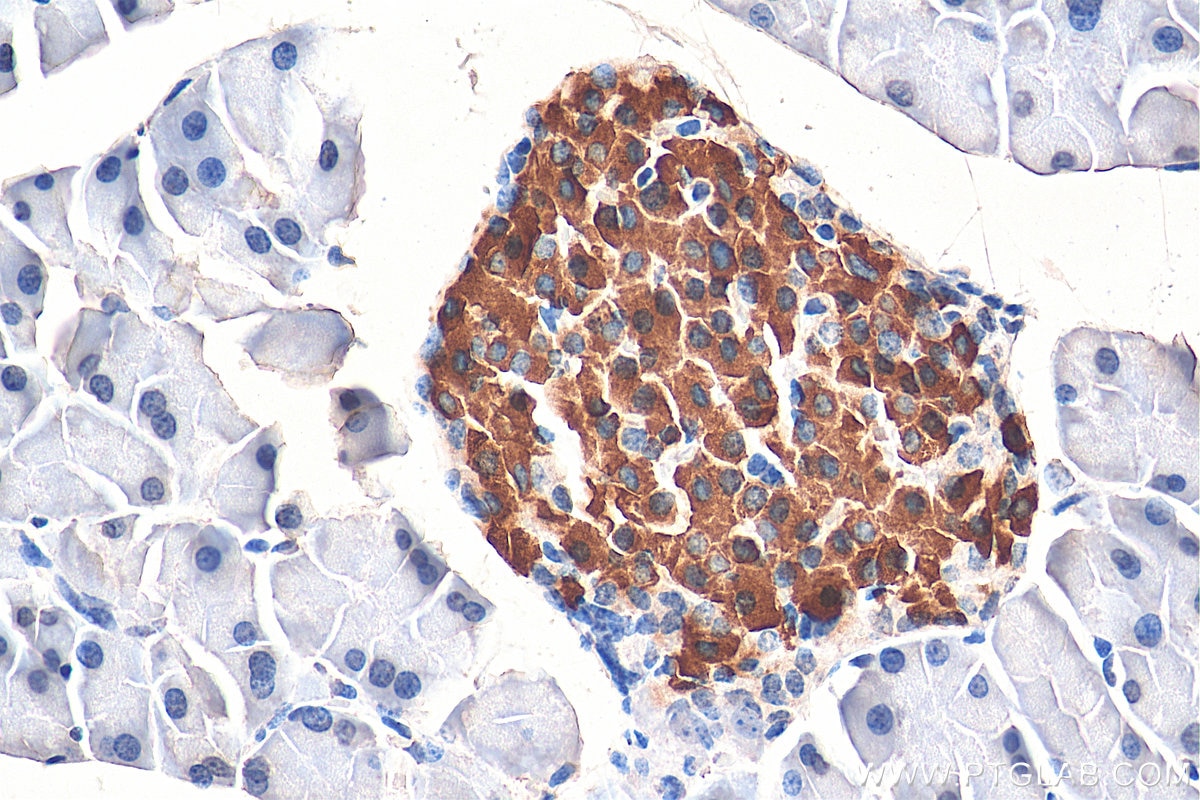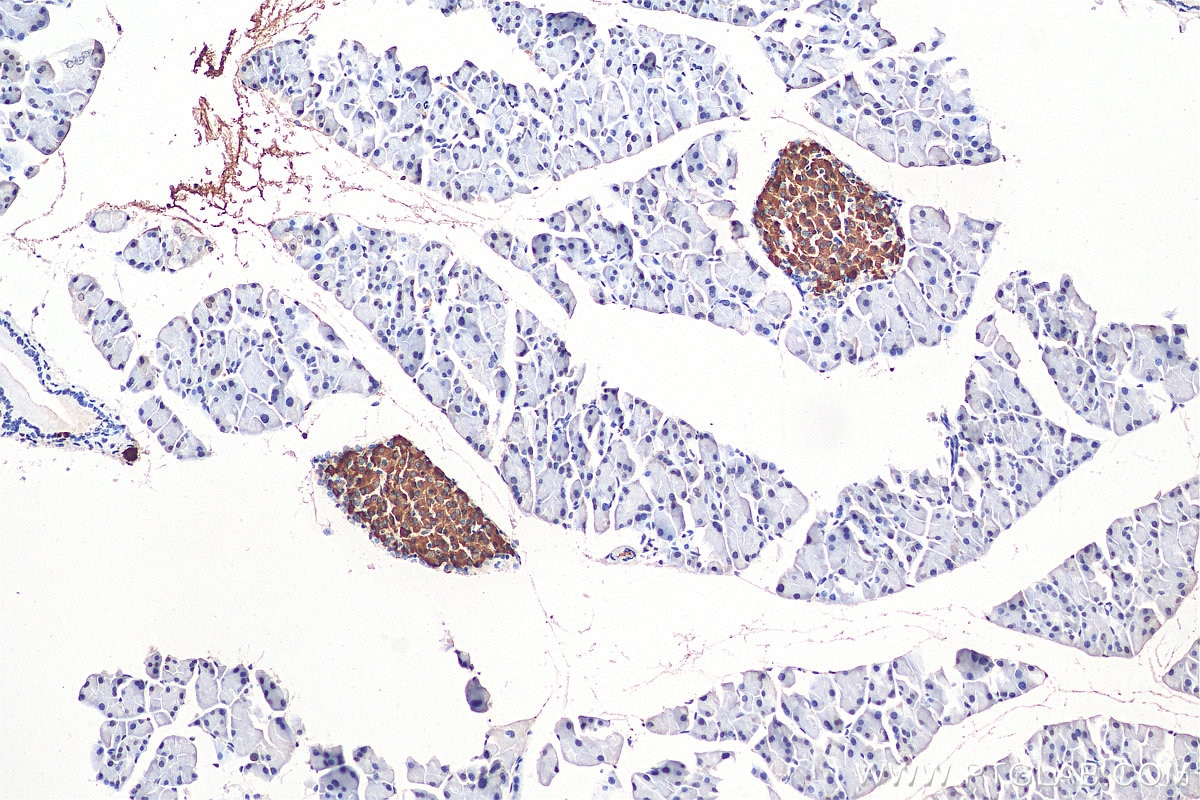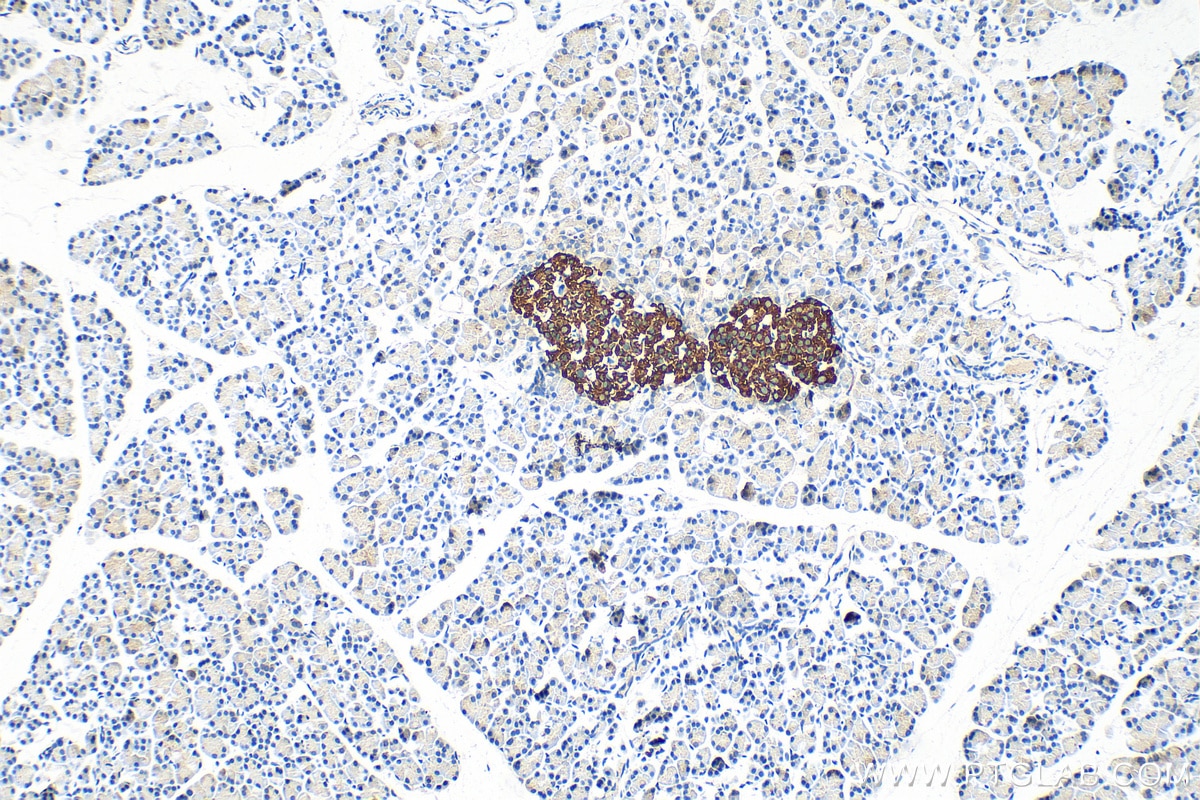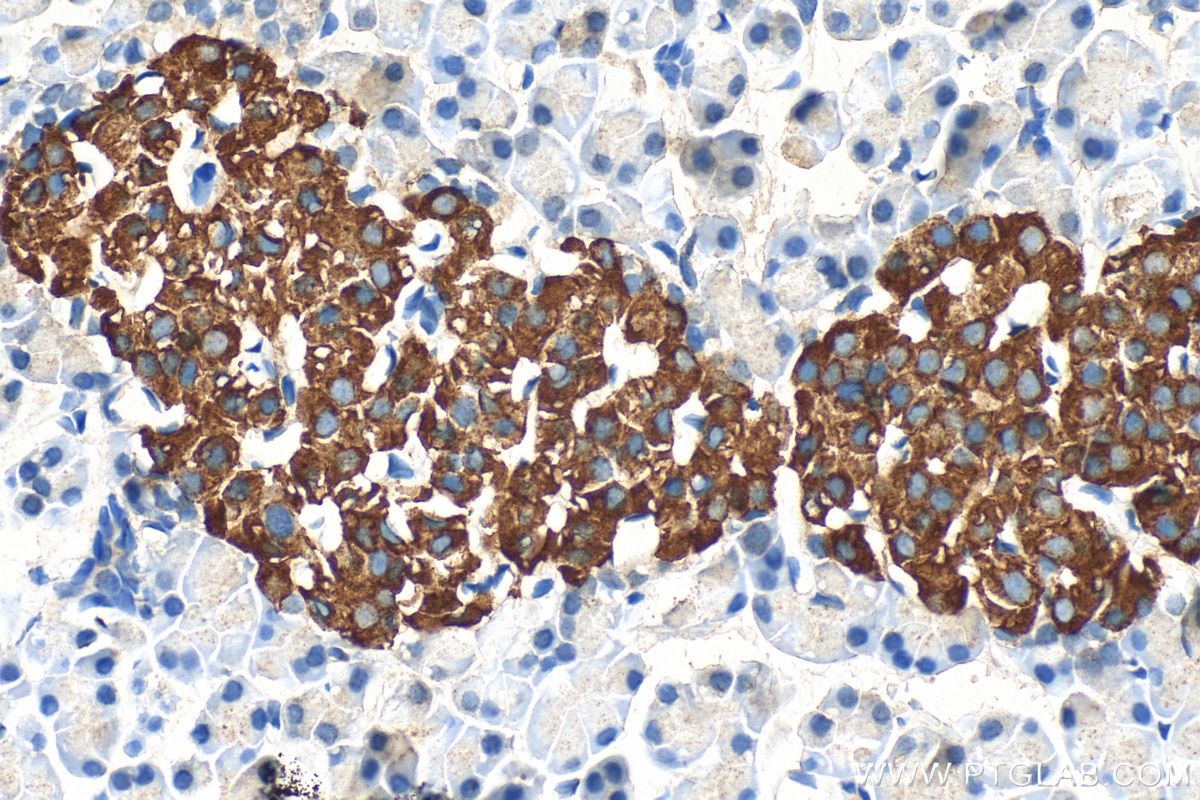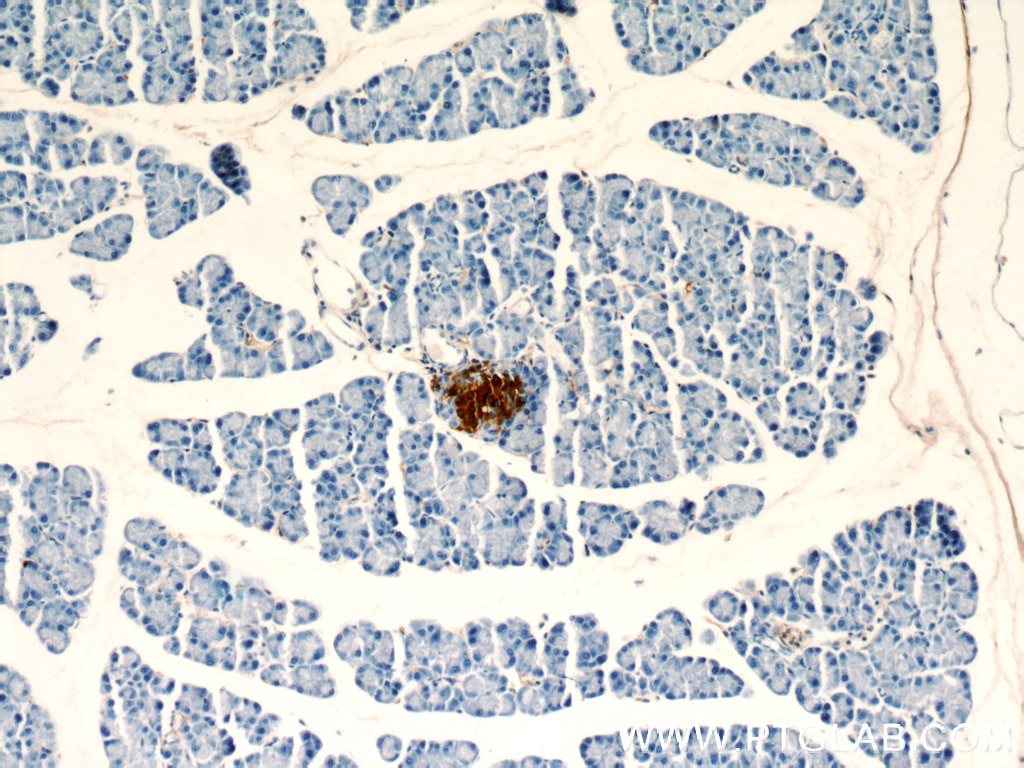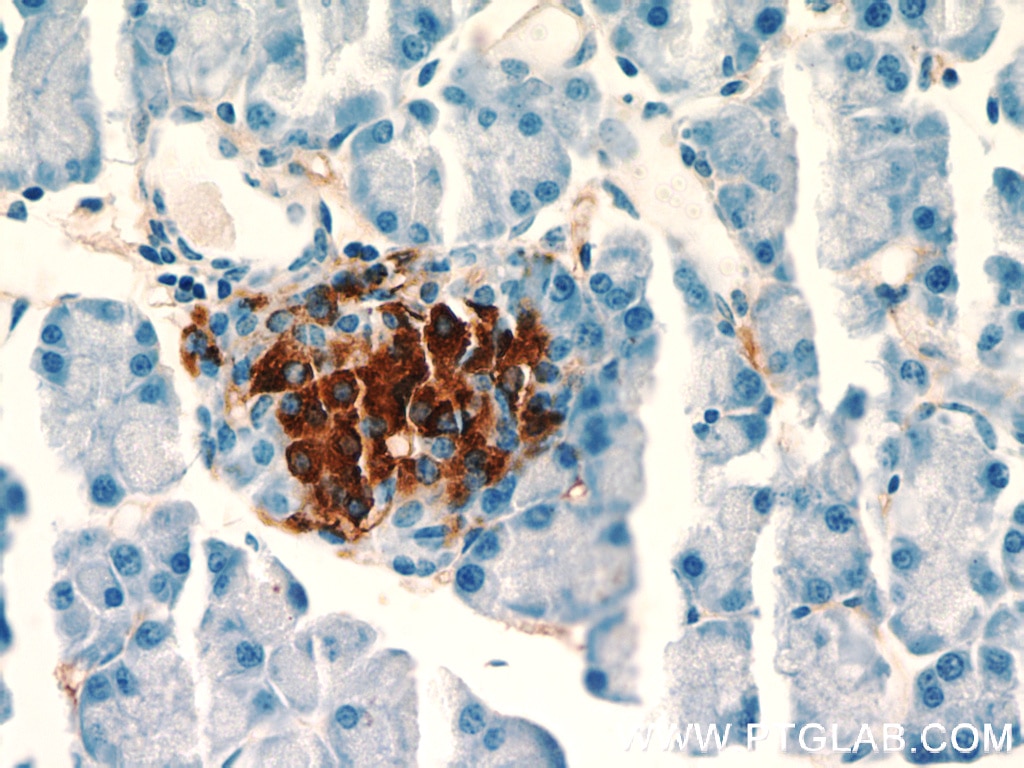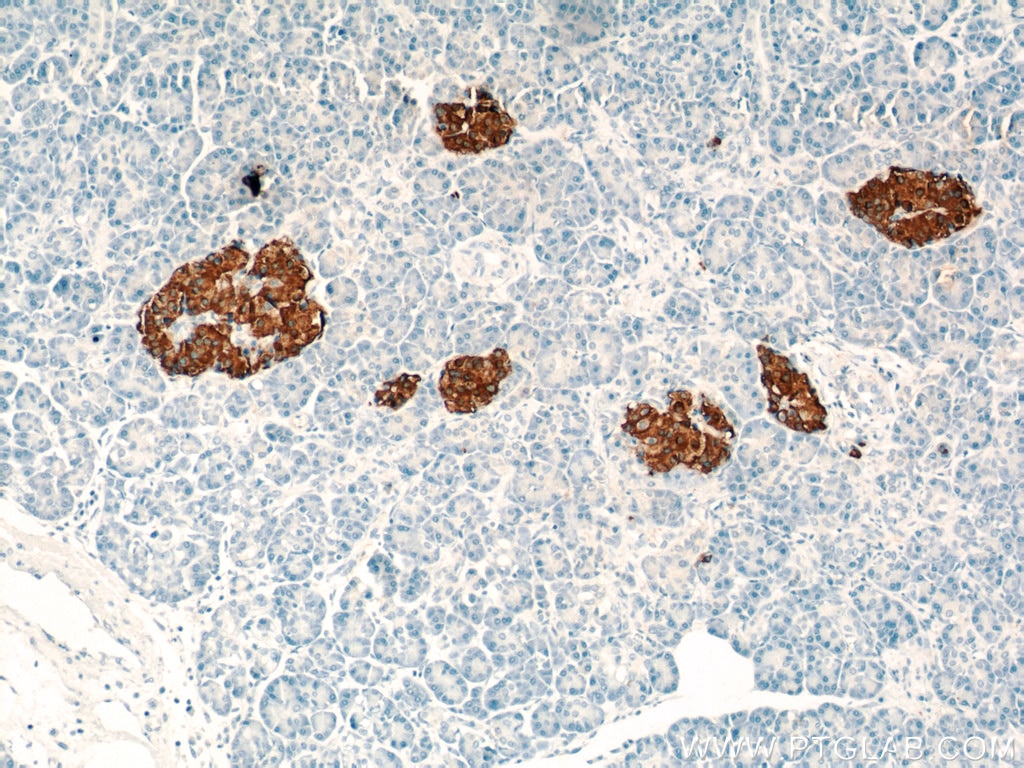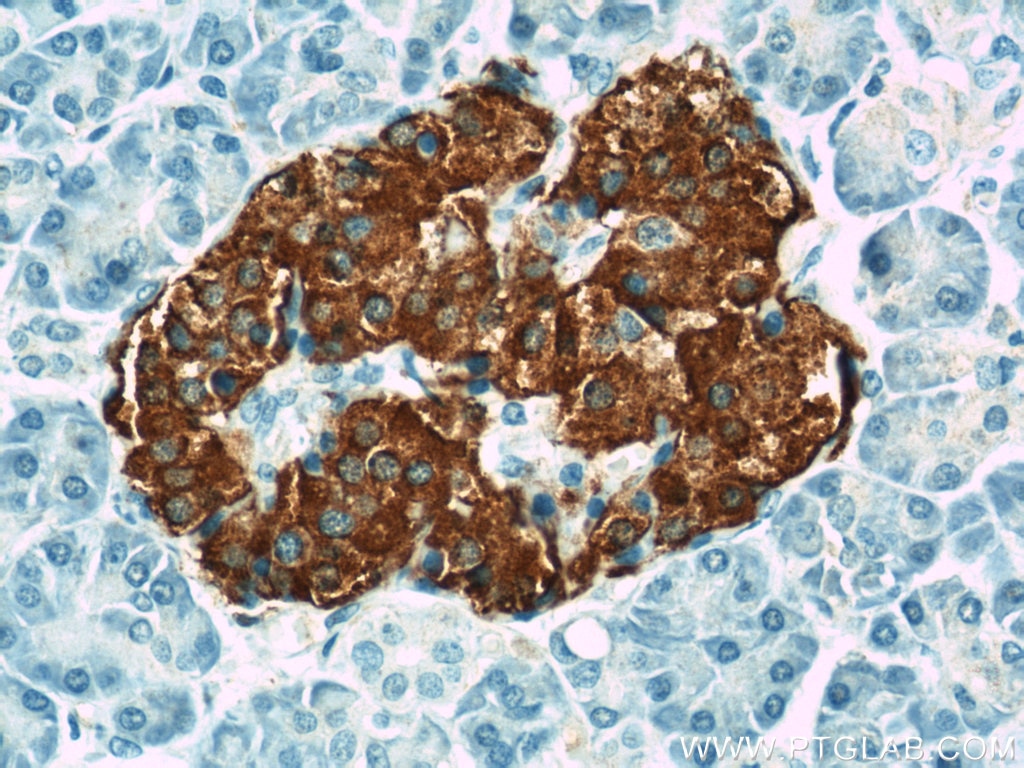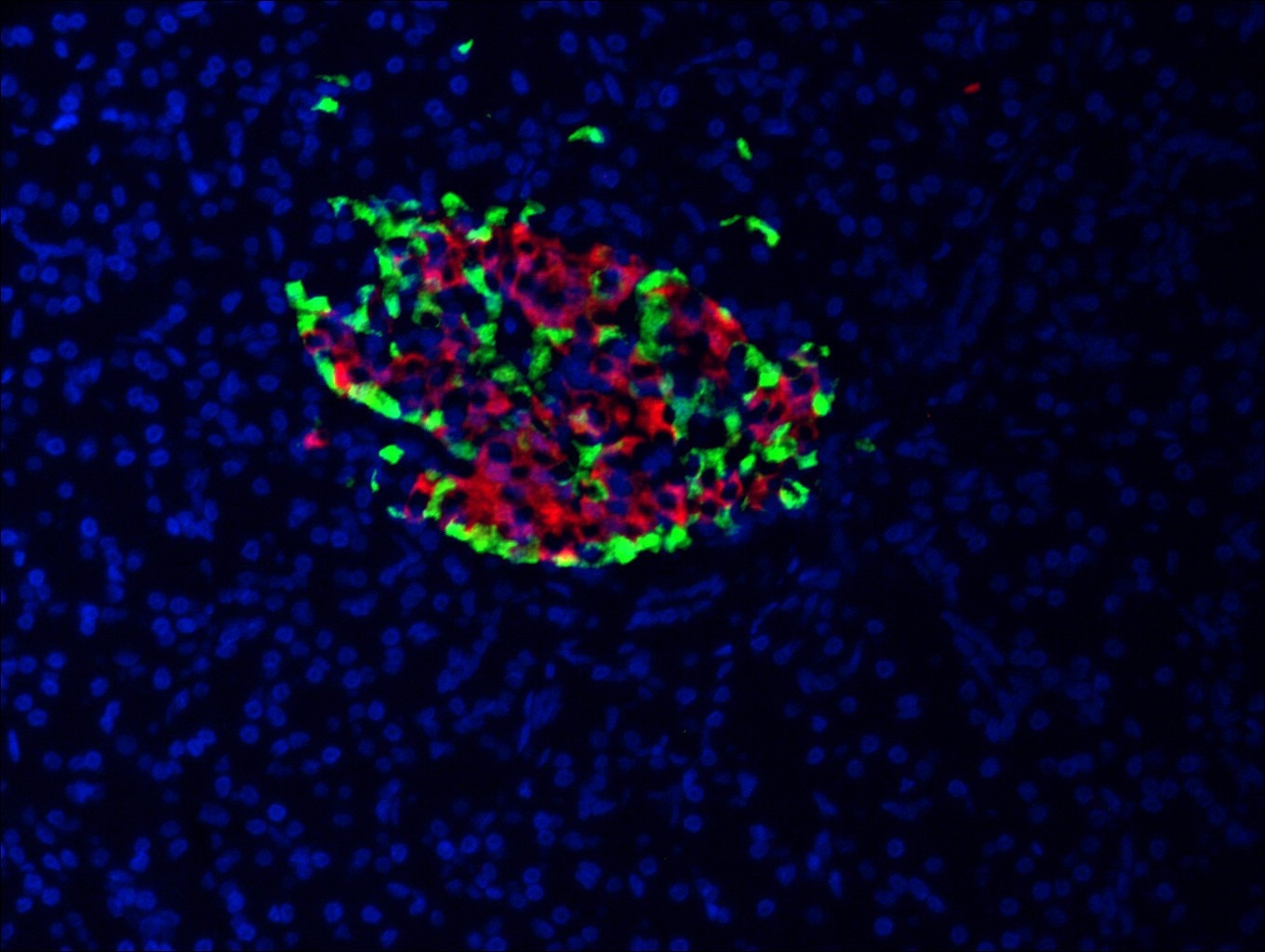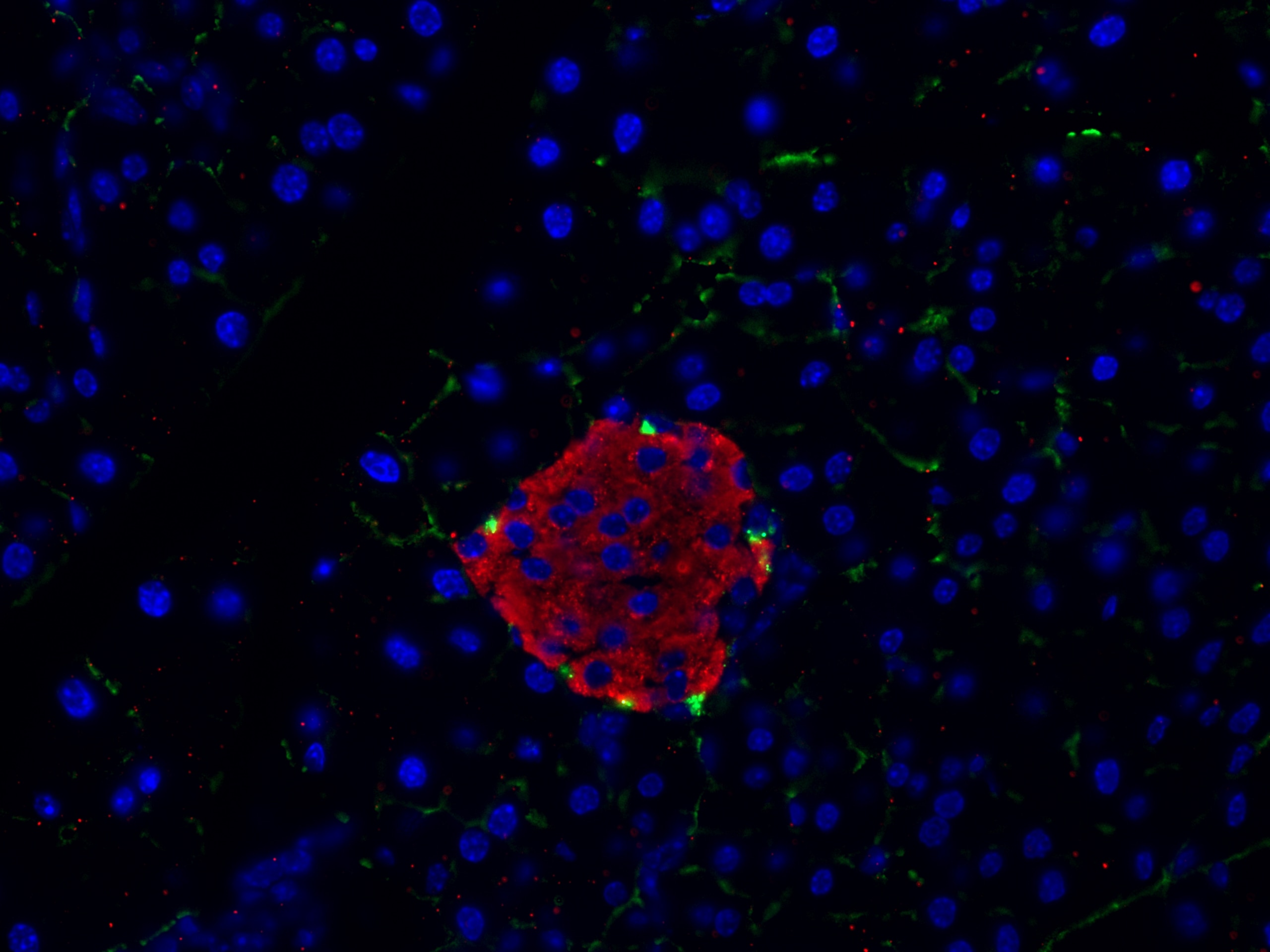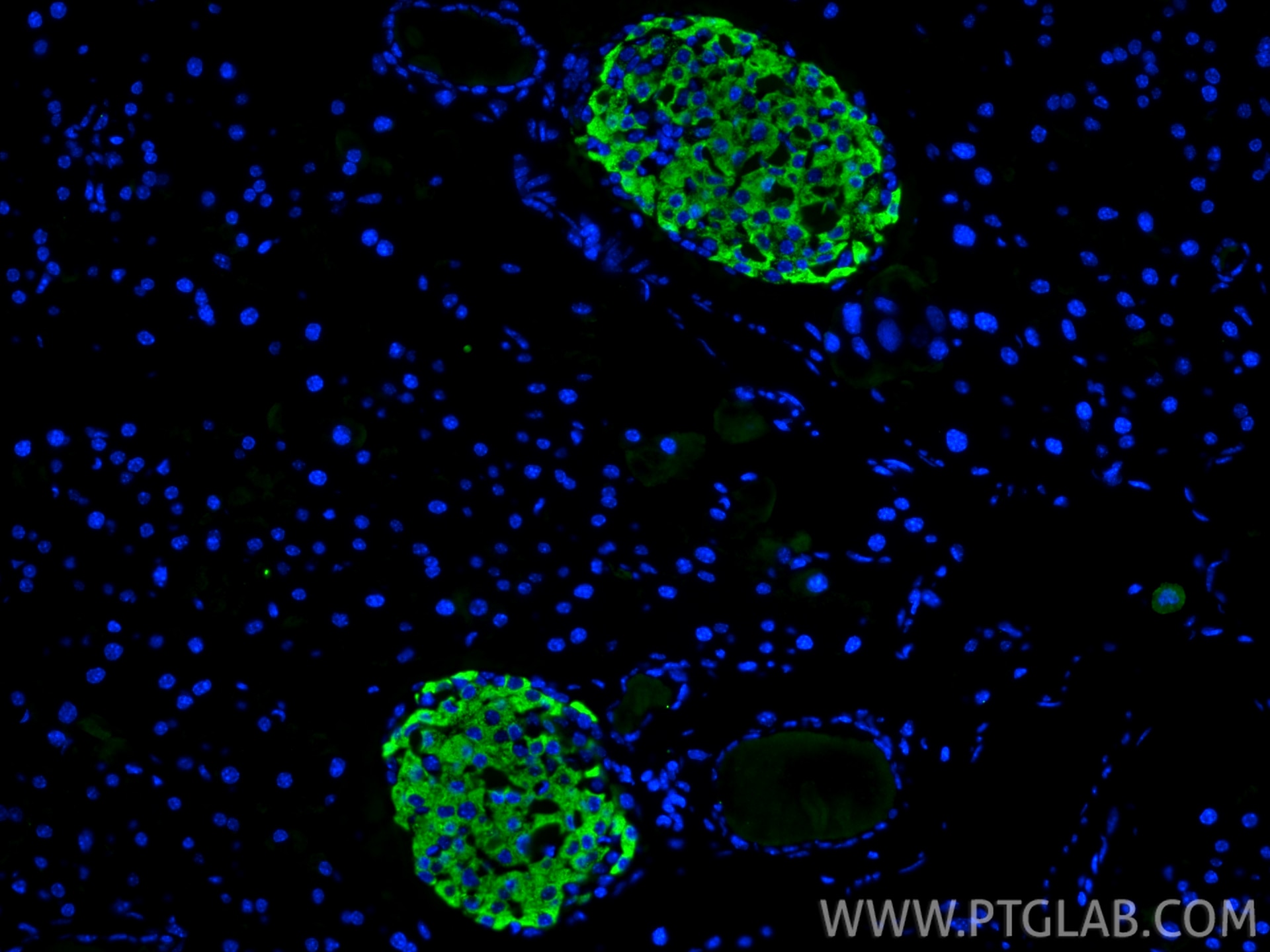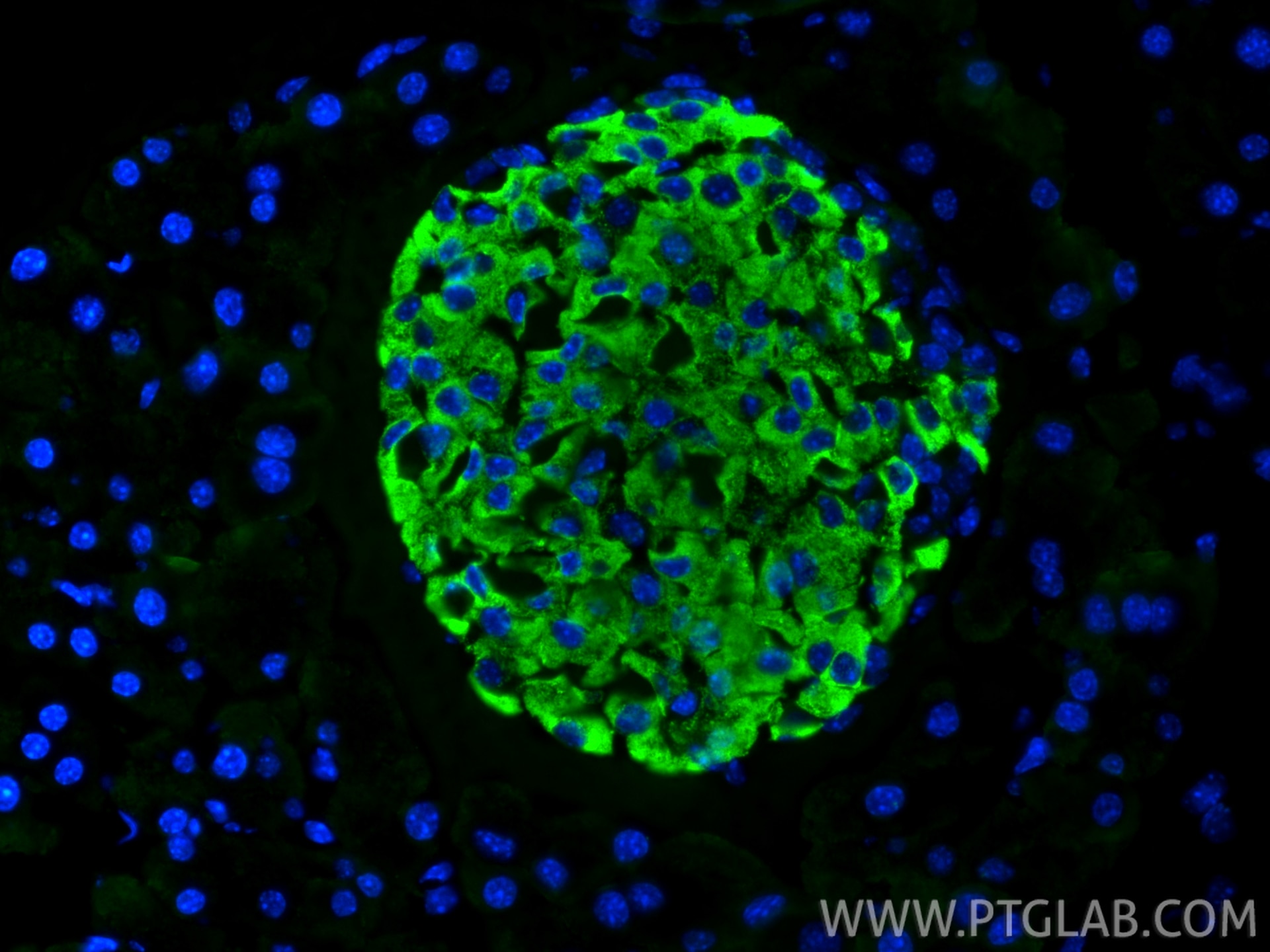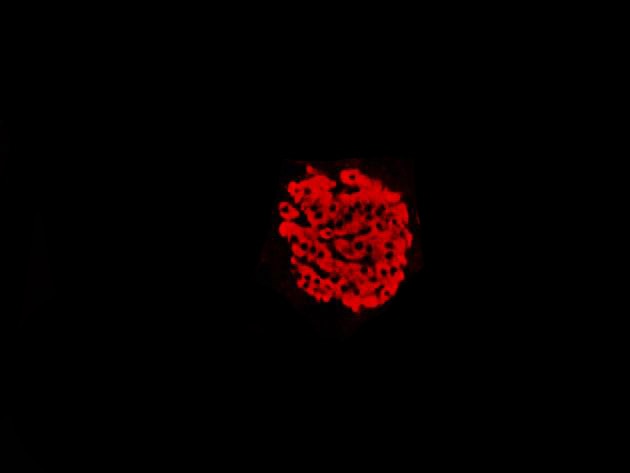INS Polyklonaler Antikörper
INS Polyklonal Antikörper für IHC, IF-P, ELISA
Wirt / Isotyp
Kaninchen / IgG
Getestete Reaktivität
human, Maus, Ratte und mehr (1)
Anwendung
IHC, IF-P, ELISA
Konjugation
Unkonjugiert
Kat-Nr. : 15848-1-AP
Synonyme
Geprüfte Anwendungen
| Erfolgreiche Detektion in IHC | Maus-Pankreasgewebe, humanes Pankreasgewebe, Ratten-Pankreasgewebe Hinweis: Antigendemaskierung mit TE-Puffer pH 9,0 empfohlen. (*) Wahlweise kann die Antigendemaskierung auch mit Citratpuffer pH 6,0 erfolgen. |
| Erfolgreiche Detektion in IF-P | humanes Pankreasgewebe, Maus-Pankreasgewebe |
Empfohlene Verdünnung
| Anwendung | Verdünnung |
|---|---|
| Immunhistochemie (IHC) | IHC : 1:500-1:2000 |
| Immunfluoreszenz (IF)-P | IF-P : 1:50-1:500 |
| It is recommended that this reagent should be titrated in each testing system to obtain optimal results. | |
| Sample-dependent, check data in validation data gallery | |
Veröffentlichte Anwendungen
| IHC | See 38 publications below |
| IF | See 38 publications below |
| ELISA | See 1 publications below |
Produktinformation
15848-1-AP bindet in IHC, IF-P, ELISA INS und zeigt Reaktivität mit human, Maus, Ratten
| Getestete Reaktivität | human, Maus, Ratte |
| In Publikationen genannte Reaktivität | human, Maus, Ratte, Zebrafisch |
| Wirt / Isotyp | Kaninchen / IgG |
| Klonalität | Polyklonal |
| Typ | Antikörper |
| Immunogen | INS fusion protein Ag8630 |
| Vollständiger Name | INS |
| Berechnetes Molekulargewicht | 110 aa, 12 kDa |
| GenBank-Zugangsnummer | BC005255 |
| Gene symbol | INS |
| Gene ID (NCBI) | 3630 |
| Konjugation | Unkonjugiert |
| Form | Liquid |
| Reinigungsmethode | Antigen-Affinitätsreinigung |
| Lagerungspuffer | PBS with 0.02% sodium azide and 50% glycerol |
| Lagerungsbedingungen | Bei -20°C lagern. Nach dem Versand ein Jahr lang stabil Aliquotieren ist bei -20oC Lagerung nicht notwendig. 20ul Größen enthalten 0,1% BSA. |
Hintergrundinformationen
INS is a peptide hormone, produced by beta cells of the pancreas, and is central to regulating carbohydrate and fat metabolism in the body. It participates in glucose utilization, protein synthesis and in the formation and storage of neutral lipids. INS is synthesized as a precursor molecule, proinsulin, which is processed prior to secretion. A- and B-peptides are joined together by a disulfide bond to form INS, while the central portion of the precursor molecule is cleaved and released as the C-peptide. Defects in INS results in type 1 diabetes mellitus.
Protokolle
| PRODUKTSPEZIFISCHE PROTOKOLLE | |
|---|---|
| IHC protocol for INS antibody 15848-1-AP | Protokoll herunterladenl |
| IF protocol for INS antibody 15848-1-AP | Protokoll herunterladen |
| STANDARD-PROTOKOLLE | |
|---|---|
| Klicken Sie hier, um unsere Standardprotokolle anzuzeigen |
Publikationen
| Species | Application | Title |
|---|---|---|
Nat Protoc Isolation of mouse pancreatic islet Procr+ progenitors and long-term expansion of islet organoids in vitro. | ||
Autophagy Secretory autophagy promotes RAB37-mediated insulin secretion under glucose stimulation both in vitro and in vivo | ||
Environ Pollut Low-dose bisphenol AF exerts slight effects on glycolipid metabolism but causes metabolic disorders under the stress of Western diet in mice | ||
Theranostics Circular RNA circPPM1F modulates M1 macrophage activation and pancreatic islet inflammation in type 1 diabetes mellitus. |
Rezensionen
The reviews below have been submitted by verified Proteintech customers who received an incentive for providing their feedback.
FH Boyan (Verified Customer) (05-14-2021) | very good for IF
|
FH Isha (Verified Customer) (01-06-2021) | Worked really well with mice pancreas. Selectively stained islets beta cells, no background staining
|
